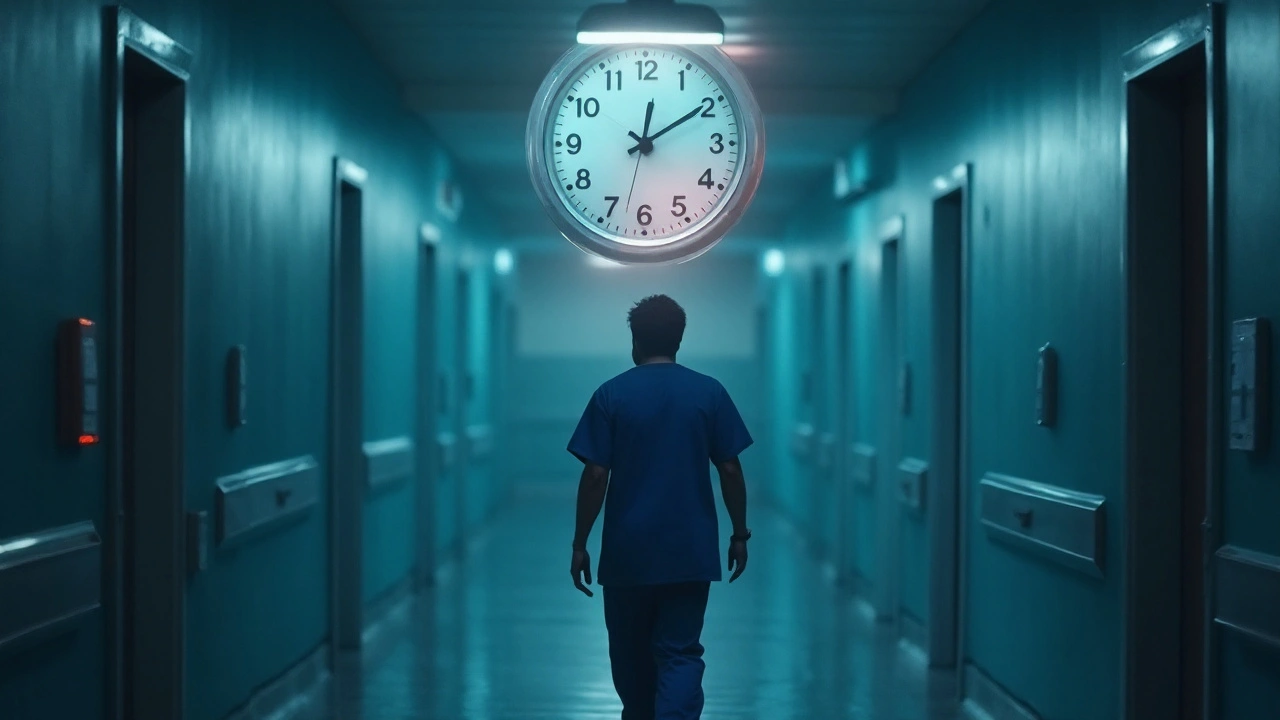
How Shift-Work Disorder Fuels Chronic Pain: Causes, Risks, and Management
Explore how shift‑work disorder disrupts the body’s clock, intensifies chronic pain, and what practical steps can break the cycle for better health.
View moreEver felt blank‑stared at your screen, cravings for coffee, and a headache that won’t quit? That’s sleep deprivation knocking on your door. It’s more than just feeling tired; it can mess with your mood, focus, and even your immune system. The good news? Small changes can put the clock back on your sleep schedule.
First clue: you need that extra cup of coffee before noon and still feel shaky by dinner. You might notice difficulty concentrating, forgetting simple tasks, or getting irritated over tiny things. Your eyes may feel gritty, and you could start nodding off while watching TV. These signs show your body is running on a low‑power mode.
Common triggers include late‑night binge‑watching, shift work, stress, or an inconsistent bedtime. Even a noisy bedroom or a mattress that’s too soft can shave minutes off your rest, adding up to serious sleep debt over weeks.
In the short run, lack of sleep slows reaction time, weakens decision‑making, and raises the risk of accidents. You may also feel a dip in appetite control, leading to cravings for sugary or salty snacks.
Long‑term, chronic sleep loss is linked to high blood pressure, weakened immunity, weight gain, and a higher chance of diabetes. Studies also tie it to mood disorders such as anxiety and depression. In other words, staying awake doesn’t just hurt your day—it can affect years of health.
1. Set a consistent schedule. Go to bed and wake up at the same time every day, even on weekends. Your body’s internal clock loves predictability.
2. Make the bedroom a sleep zone. Keep the room dark, cool, and quiet. A simple blackout curtain or a white‑noise app can work wonders.
3. Trim screen time. Blue light from phones and laptops tricks your brain into thinking it’s still daytime. Try to switch off devices at least an hour before bed, or use a night‑mode filter.
4. Watch caffeine and alcohol. Caffeine stays in your system for up to six hours, so avoid it after mid‑afternoon. Alcohol might help you fall asleep, but it disrupts the deeper stages of sleep.
5. Use short naps wisely. A 20‑minute power nap can boost alertness without hurting nighttime sleep. Anything longer may leave you feeling groggy.
Finally, keep a sleep diary for a week. Note when you go to bed, wake up, and any factors that disturbed your rest. Spotting patterns helps you fine‑tune the routine that works best for you.
Sleep deprivation doesn’t have to be a permanent state. By spotting the signs early and applying these simple habits, you can reclaim refreshed mornings and sharper days. Give your body the rest it craves—you’ll notice the difference fast.

Explore how shift‑work disorder disrupts the body’s clock, intensifies chronic pain, and what practical steps can break the cycle for better health.
View more